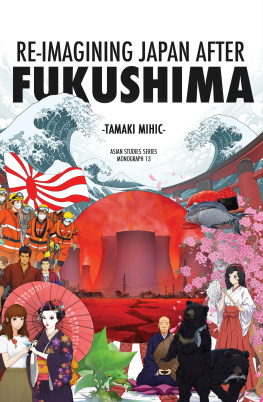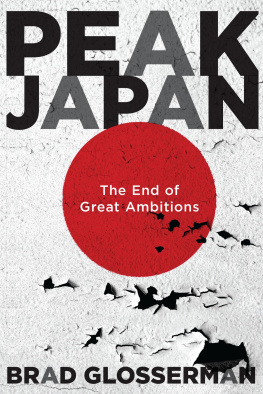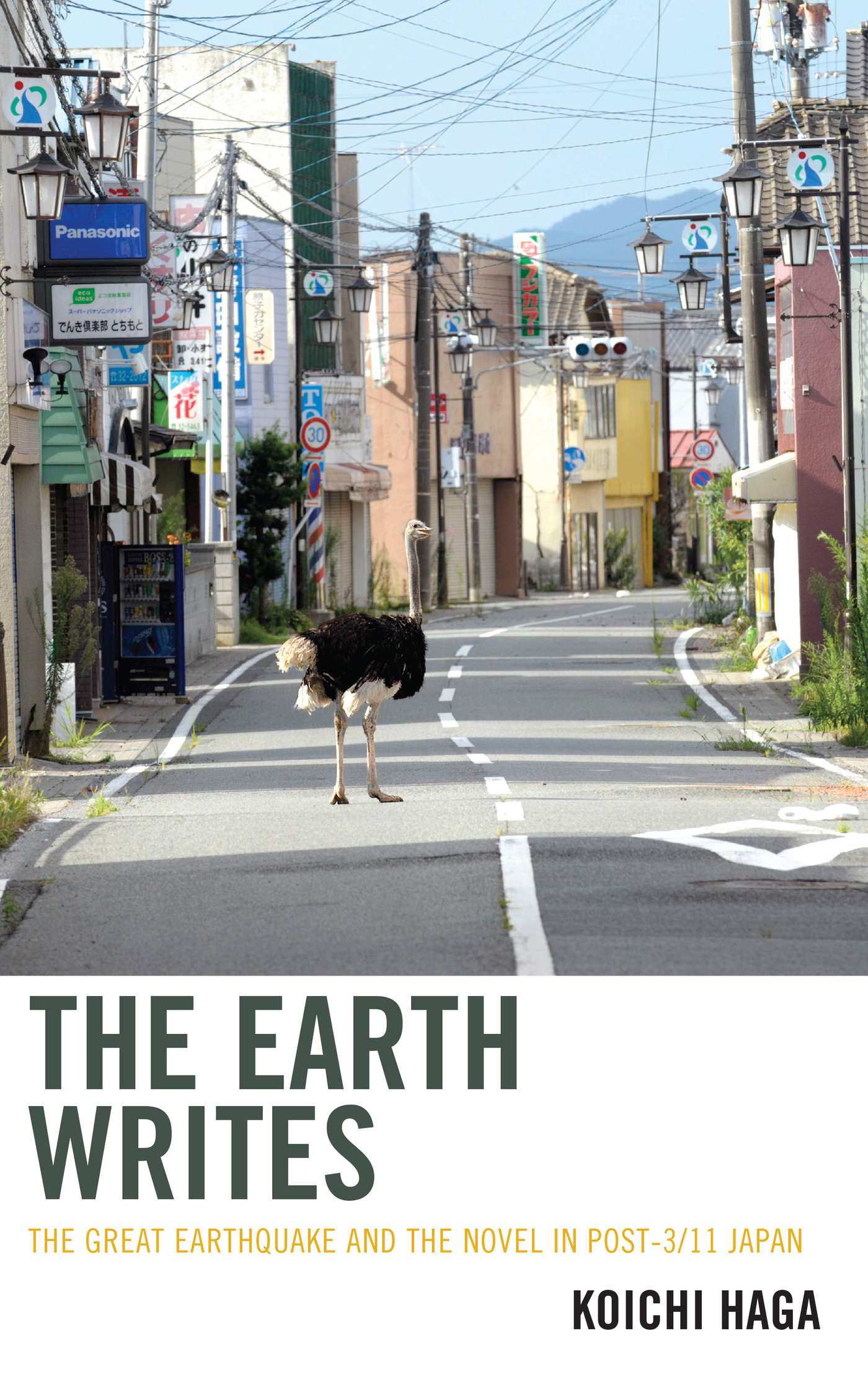The Earth Writes
Ecocritical Theory and Practice
Series Editor: Douglas A. Vakoch, METI
Advisory Board:
Bruce Allen, Seisen University, Japan; Zlia Bora, Federal University of Paraba, Brazil; Izabel Brando, Federal University of Alagoas, Brazil; Byron Caminero-Santangelo, University of Kansas, USA; Simo Farias Almeida, Federal University of Roraima, Brazil; George Handley, Brigham Young University, USA; Steven Hartman, Mlardalen University, Sweden; Isabel Hoving, Leiden University, The Netherlands; Idom Thomas Inyabri, University of Calabar, Nigeria; Serenella Iovino, University of Turin, Italy; Daniela Kato, Kyoto Institute of Technology, Japan; Petr Kopeck, University of Ostrava, Czech Republic; Serpil Oppermann, Hacettepe University, Turkey; Christian Schmitt-Kilb, University of Rostock, Germany; Heike Schwarz, University of Augsburg, Germany; Murali Sivaramakrishnan, Pondicherry University, India; Scott Slovic, University of Idaho, USA; J. Etienne Terblanche, North-West University, South Africa; Julia Tofantuk, Tallinn University, Estonia; Cheng Xiangzhan, Shandong University, China; Hubert Zapf, University of Augsburg, Germany
Ecocritical Theory and Practice highlights innovative scholarship at the interface of literary/cultural studies and the environment, seeking to foster an ongoing dialogue between academics and environmental activists.
Recent Titles
The Earth Writes: The Great Earthquake and the Novel in Post-3/11 Japan, by Koichi Haga
Ecomasculinities: Negotiating Male Gender Identity in U.S. Fiction, by Rubn Cenamor and Stefan Brandt
Ecopoetics and the Global Landscape: Critical Essays, by Isabel Sobral Campos
The Human-Animal Boundary: Exploring the line in Philosophy and Fiction, edited by Mario Wenning and Nandita Batra
Towards the Rivers Mouth (Verso la foce), Gianni Celati, A Critical Edition, edited, translated, and introduced by Patrick Barron
Gender and Environment in Science Fiction, edited by Bridgitte Barclay and Christy Tidwell
Ecological Crisis and Cultural Representation in Latin America: Ecocritical Perspectives on Art, Film, and Literature, edited by Mark Anderson and Zelia M. Bora
Confronting Climate Crises through Education: Reading Our Way Forward, by Rebecca Young
Environment and Pedagogy in Higher Education, edited by Lucie Viakinnou-Brinson
Nordic Narratives of Nature and the Environment: Ecocritical Approaches to Northern European Literatures and Cultures, edited by Reinhard Hennig, Anna-Karin Jonasson, and Peter Degerman
Ecocriticism, Ecology, and the Cultures of Antiquity, edited by Christopher Schliephake
The Earth Writes
The Great Earthquake and the
Novel in Post-3/11 Japan
Koichi Haga
LEXINGTON BOOKS
Lanham Boulder New York London
Published by Lexington Books
An imprint of The Rowman & Littlefield Publishing Group, Inc.
4501 Forbes Boulevard, Suite 200, Lanham, Maryland 20706
www.rowman.com
6 Tinworth Street, London SE11 5AL, United Kingdom
Copyright 2019 by The Rowman & Littlefield Publishing Group, Inc.
All rights reserved. No part of this book may be reproduced in any form or by any electronic or mechanical means, including information storage and retrieval systems, without written permission from the publisher, except by a reviewer who may quote passages in a review.
British Library Cataloguing in Publication Information Available
Library of Congress Cataloging-in-Publication Data Available
ISBN 978-1-4985-6903-3 (cloth : alk. paper)
ISBN 978-1-4985-6904-0 (electronic)
 TM The paper used in this publication meets the minimum requirements of American National Standard for Information Sciences Permanence of Paper for Printed Library Materials, ANSI/NISO Z39.48-1992.
TM The paper used in this publication meets the minimum requirements of American National Standard for Information Sciences Permanence of Paper for Printed Library Materials, ANSI/NISO Z39.48-1992.
Printed in the United States of America
Acknowledgments
I want to thank the friends, families, and colleagues who have helped me bring this book into existence. I have benefited from the comments and conversations of the people face to face and through social media: Bruce Allen, Eiji Sekine, Masami Yuki, Michael Emmerich, Scott Slovic, Ursula K. Heise, Yoshitaka Hibi and Ysuke Kimura. Anonymous reviewers at Lexington Books provided detailed feedback and criticism that caused me to revisit many of my initial analysis as well.
While the errors appeared here are entirely my own, I offer my sincere appreciation to Jennifer Cullen and MaryAnn Scott for polishing my writing at various stages. I also wish to express my gratitude for the support I received during my postgraduate study at UCLA from Seiji Lippit, Michael Bourdaghs, Donald MacCallum, Mariko Tamanoi, Michael Marra, and Herbert Plutschow. Even though I set my dissertation aside to write this book, their unfaltering encouragement has never stopped. I feel extremely fortunate to have had their advice over the years.
Research grants from the Japan Society for the Promotion of Science (JSPS KAKENHI Grant Number 18K00511) and Josai International University enabled me to attend conferences in and out of Japan in addition to purchase many research materials.
In June 2018, I published a book in Japanese titled Posuto 3.11 shsetsuron: Osoi bryoku ni kousuru jinshinsei no shis (Post-3.11 Novels: Thoughts of the Anthropocene against Slow Violence). Although I modified it extensively, some of the material contained herein overlaps with the Japanese version. I have significantly revised chapters 3, 4, 5, 6, and 8 for the Japanese version of this book by adding new materials and analysis. Chapter 2 of this book appeared as Fissures Opened in Literary Ground: The Great East Japan Earthquake and Kenzabur es In Late Style in Ecocriticism in Japan edited by Hisaaki Wake, Keijiro Suga, and Masami Yuki (Lexington Books, 2018). I am grateful to the editors of Ecocriticism in Japan for giving me an opportunity to initiate this book project.
I am also thankful to Yasusuke ta for allowing me to reproduce an image for the book cover. Enormous appreciation is extended to the current and former editors at Lexington Booksto Michael, Lindsey, Mikayla, Naomi, and Doug for their support of my work.
Finally, for their inexhaustible optimism, understanding and forbearance, I am most thankful to my family, Yuko and Chihiro.
Introduction
Overview of Post-3/11 Cultural Production
This book examines interactions between the movements of the earth and fictional writings. Earthquake and tsunami, caused by the collapse and sliding of tectonic plates 70 kilometers off the coast of Sendai in March 2011, or the Great East Japan Disaster, also acted on the production and themes of many of the novels that followed. I will argue that in these novels the senses of time and space as well as the self are re-signified and re-formulated, traces of the earths agency. A number of significant books have been published on the 3/11 disaster in Japanese and other languages in the areas of politics, society, economy, or music such as 3.11: Disaster and Change in Japan (2013), Japan Copes With Calamity: Ethnographies of the Earthquake, Tsunami and Nuclear Disasters of March 2011 (2013 and 2015), and The Revolution Will Not Be Televised: Protest Music After Fukushima (2015) but there little has been written on cultural production. This book will contribute to filling that gap. However, it is of course impossible for a single researcher to examine all or even most important post-disaster literary works. Therefore, in this book I concentrate on novels that most clearly explore the agency of the earth and its interactions with novelistic writing.






 TM The paper used in this publication meets the minimum requirements of American National Standard for Information Sciences Permanence of Paper for Printed Library Materials, ANSI/NISO Z39.48-1992.
TM The paper used in this publication meets the minimum requirements of American National Standard for Information Sciences Permanence of Paper for Printed Library Materials, ANSI/NISO Z39.48-1992.